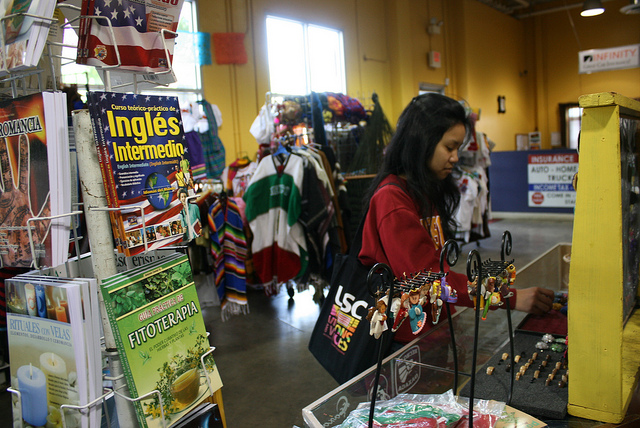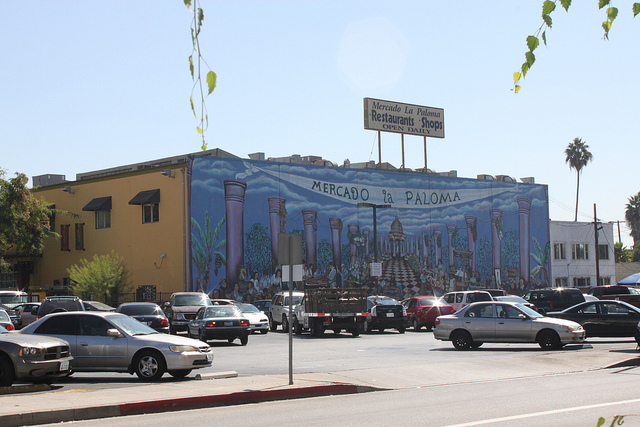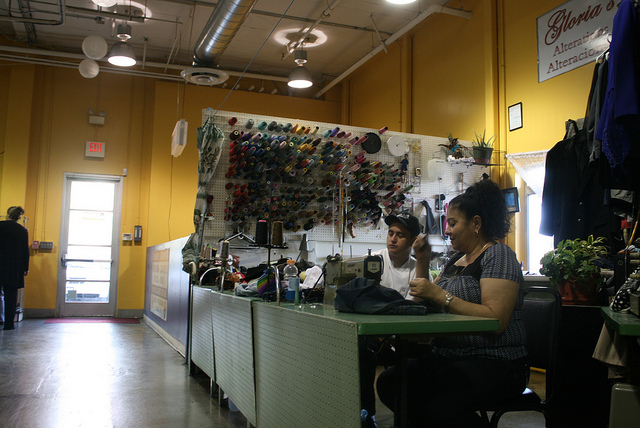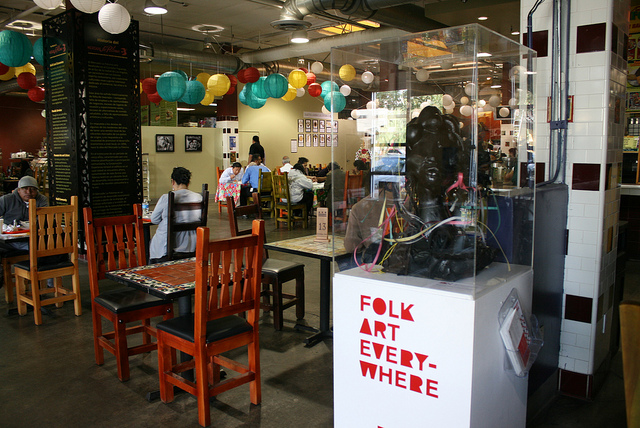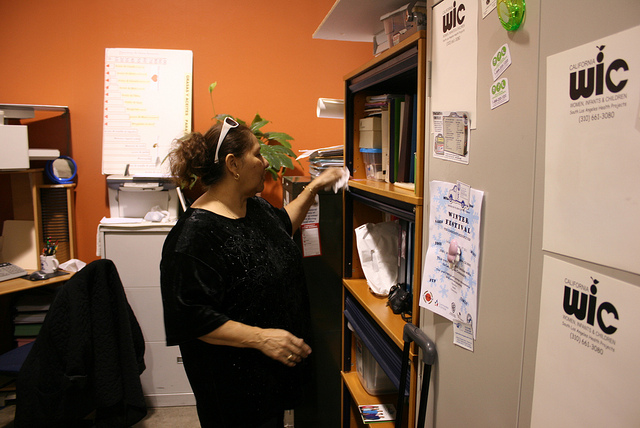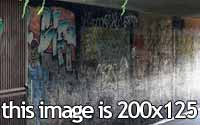Interviews| Nancy Halpern Ibrahim, Executive Director of ECHC, and Mark Billy, one of the Mercado's architects.
Thumbnail file name should be: lastname-tzr.jpg EX: hernandez-tzr.jpg et semper magna laoreet at. Fusce pulvinar, neque non rutrum accumsan, mi sapien vulputate orci, vel sollicitudin neque lorem non lectus. Nullam justo est, tincidunt in suscipit sit amet, mollis at justo.
Nulla facilisi. Nullam vestibulum condimentum turpis, et semper magna laoreet at. Fusce pulvinar, neque non rutrum accumsan, mi sapien vulputate orci, vel sollicitudin neque lorem non lectus. Nullam justo est, tincidunt in suscipit sit amet, mollis at justo.
Nulla facilisi. Nullam vestibulum condimentum turpis, et semper magna laoreet at. Fusce pulvinar, neque non rutrum accumsan, mi sapien vulputate orci, vel sollicitudin neque lorem non lectus. Nullam justo est, tincidunt in suscipit sit amet, mollis at justo.
By Candice Aman
Decked in a cardinal sweater and black tote bag embossed with the USC insignia, Annie Vu, a biology student, stopped by a vendor inside Mercado La Paloma to admire a selection of colorful handcrafted trinkets from South America.
Just across the 110 Freeway overpass from the university, Mercado La Paloma, also known as the Dove Marketplace, is an economic development project created by Esperanza Community Housing Corporation (ECHC) to aid its efforts in developing a safe and lively environment that is also affordable to its residents.
As a one-time garment sweatshop, the Mercado has long been transformed to be a burgeoning space for small businesses to develop and cultivate as well for various non-profit organizations to be more readily accessible to the community.
And yet, even with its close proximity to the college campus, the foot traffic from USC students and staff members walking through the Mercado's doors on an everyday basis is a rarity.
Vu, who only discovered the Mercado through a field trip with her freshman seminar course, noted that the lack of awareness for the project derives from a distinct disconnect between the university and its surrounding community.
"I never knew a place like this existed so close to campus and my friends don't either," Vu said. "I think they would be impressed with the integration of cultures and businesses. It an inspiration."
Since it's conception nearly twelve years ago, Mercado La Paloma has strived to grow as a platform for local business owners to make a name for themselves within its surrounding neighborhood as well as in the Los Angeles community
With its continuous renovations and with a little help from culinary reviewers in the area, the Mercado has become a destination for food-obsessed connoisseurs everywhere.
Just last month, renowned food critic, Jonathan Gold chose to spotlight two of the Mercado's vendors, Chichen Itza and Mo-Chica, for his annual "99 Essential L.A. Restaurant" list in the pages of "LA Weekly."
Despite the Mercado's tremendous growth, tough economic times has only resulted in less business as well as deeper cuts in funding from outside agencies causing many vendors and employees to move out of the building.
With patrons traveling from all over the city to sample his Yucatan cuisine, Gilberto Cetina, chef and owner of Chichen Itza is a benchmark in the impact that the Mercado can have upon a business. Not only does his revenues continue to increase exponentially, Cetima has also delved into other ventures like writing a cookbook of his recipes from the restaurant, which will be available soon.
However, when Cetina tried to expand his booming business by opening a second location in MacArthur Park a couple years ago, he was forced to close it down after a short period of time due to the recession.
Additionally, various ambitious development projects, including one proposed by the university have threatened the security of the community.
In 2010, USC announced its plans to construct 350,000 sq. feet of retail, academic, and housing space, which will be single largest development project in South Los Angeles to replace its existing University Village.
According to the university, the proposed project, which is slated for completion in 2030, will create an estimated 12,600 new jobs and generate more than $1 billion in economic impact over the course of the next twenty years.
Beth Rodin, marketing director for Mercado La Paloma, is skeptical at what the development will mean for smaller businesses in the area, including those at the Mercado.
"It would be interesting to see what the pressure of those new businesses will be on small businesses," Rodin said. "Right now, there's not a clear pathway for how small businesses and the community will benefit or participate in that project."
Rodin hopes that the proposed development projects will try to create partnerships with existing businesses instead of overshadowing them.
"We are trying to work USC to figure out how to make the retails that they are adding be beneficial to everybody instead of displacing small business owners who have really invested in and taken a lot of risks to improve the community for the last couple of decades," Rodin said.
Similarly, Nancy Halperin Ibrahim, executive director of the ECHC, predicts the development plans will bring more harm than benefits to residents of the area on a long-term scale.
"We have been enormously successful in some of the best practices in community development," Ibrahim said. "And yet we are being victimized by our own successes because this neighborhood is undergoing so many gentrification pressures and that is a great tragedy for us.
With these development plans looming in the air causing uncertainty for the future of the community, Mercado La Paloma and the ECHC only strive to continue to improve and regenerate its community against all odds.

